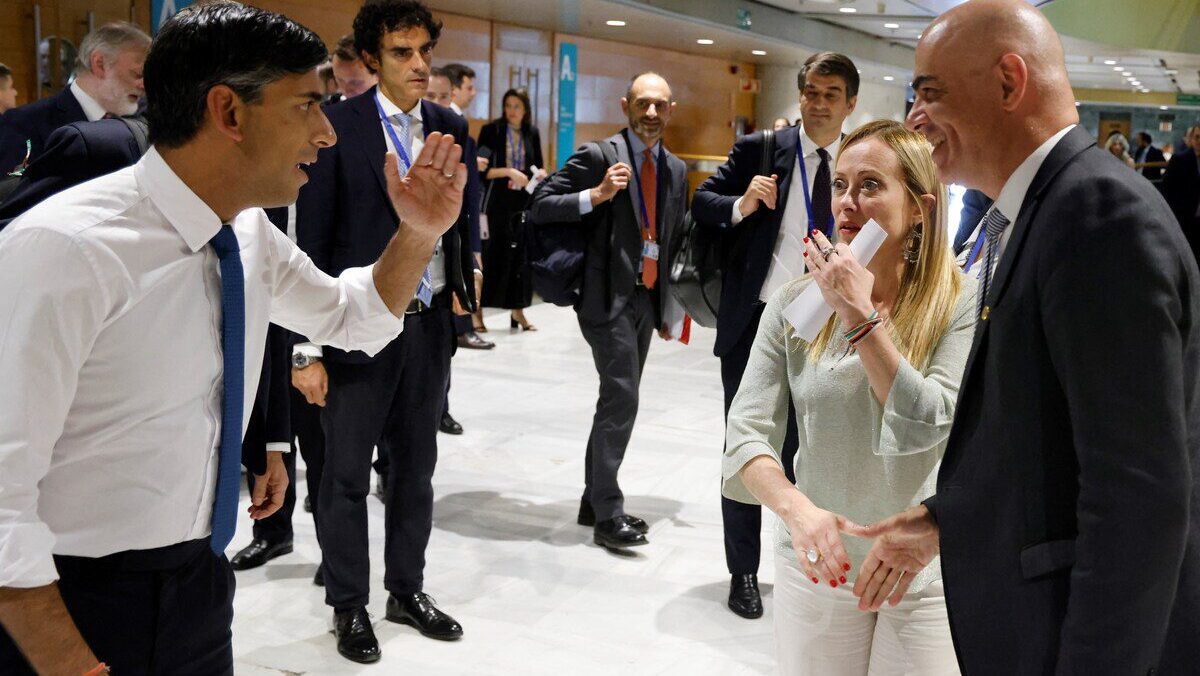
In an act of political posturing amid their abject failures to stem record levels of illegal migration, UK Prime Minister Rishi Sunak and his Italian counterpart Giorgia Meloni have announced that action will be taken to finally bring an end to the ongoing migration crisis.
The announcement comes on the heels of the less-than-successful European Political Community summit in Granada, where, prior to its commencement, Sunak had sought to make illegal migration one of the top agenda items. His efforts, however, were brushed aside by the left-wing Spanish hosts, who preferred instead to discuss other ‘more pressing’ issues.
In a joint op-ed piece titled “We must stand together against criminal people smugglers,” published by The Times on Friday, October 6th, Sunak and Meloni, both of whom have overseen record levels of illegal immigration despite their hardline rhetoric on the issue, wrote that “now is the time” to take action to stop illegal migratory flows to regain the trust of the British and Italian people.
“Only by stopping the flow of illegal migrants can we restore the trust of the British and Italian people, not just in our domestic borders, but in European and international cooperation,” they wrote. They emphasized that illegal migration flows must be stopped—not to conserve Italian and British culture and identity, —but to “protect [the] two countries’ historic role as places of asylum and sanctuary.”
Sunak’s Conservative Party has witnessed a precipitous decline in its support over the past two years, largely due to its failure to act decisively to stop the arrival of boat migrants. With his tough talk, Sunak is hoping to regain support among voters who have abandoned the party. Meloni, on the other hand, despite also failing to live up to campaign promises to solve the migration crisis, has seen her support remain relatively static.
On the sidelines of the summit, Sunak and Meloni convened with leaders from France, Netherlands, Albania, and the European Commission, with all parties involved agreeing to share more intelligence and increase cooperation with one another in order to disrupt criminal trafficking networks. They agreed on an eight-point plan to stem migration flows.
Unfortunately, a key component of the plan relies on paying so-called “partner countries,” namely poor, often autocratic, and unreliable North African governments, to ensure that not only are migrants prevented from departing but in the case that they do depart that they’re able to be returned.
Similar plans to reduce mass migration into Europe, such as the EU-Turkey deal and the EU-Tunisian agreement, which have relied on paying off autocrats to hold back migratory flows, haven’t always worked out.
For example, the European Commission last month, announced its intention to provide 127 million euros in aid to Tunisia as a part of the agreement to combat illegal immigration from Africa to Europe. Earlier this week, however, Tunisian President Kais Saied rejected the financial support, saying the amount is too small and goes against the deal signed three months ago.
On the same day of the summit in Granada, the EU Commissioner Olivér Várhelyi told Tunisia that it’s “free to cancel its formal disbursement request and wire back the money to the EU budget,” noting that the EU had already handed over 60 million euros in support to Tunisia as a part of a 2021 aid program.
Thursday’s European Political Community summit saw 47 EU and non-EU leaders gather in an attempt to, among other things, broker peace between Armenia and Azerbaijan, de-escalate tensions between Serbia and Kosovo, and address security concerns of the continent.
This year, alone, Italy and the UK have witnessed some 100,000 and 25,000 illegal migrants make landfall on their shores, respectively
